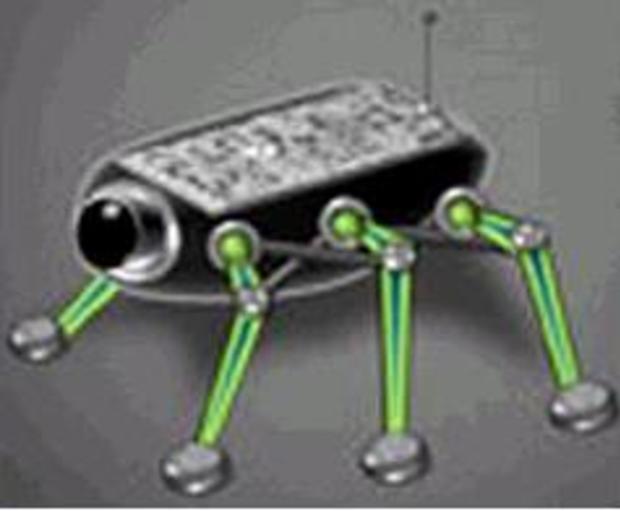Navy look to bacteria to fuel mini space robot
Navy researchers are exploring whether lowly bacteria found in soil can help survey the outer reaches of space.
The U.S. Naval Research Laboratory yesterday detailed a project to design a "microrover" robot that would be able to explore planetary bodies for long periods of time without human intervention.
To overcome the limitations of today's batteries, researchers intend to use a microbial fuel cell to generate power for a small robot that would weigh about two pounds.
The idea is to have an advanced microbial fuel cell that would generate enough power to maintain the electronics on the robot and charge up a battery or capacitor. Once charged up, the robot would be able to perform more power-intensive tasks, such as moving the rover with a hopping or tumbling motion or run scientific experiments.
"Microbial fuel cells coupled with extremely low-power electronics and a low energy requirement for mobility addresses gaps in power technology applicable to all robotic systems, especially planetary robotics," Gregory Scott at the Naval Research Laboratory's Spacecraft Engineering Department said in a statement.
To make the system work would involve not only very low-power electronics but also advances in microbial fuel cells. Certain naturally occurring bacteria metabolize the energy in biomass and produce electrons. By collecting electrons on an electrode in a circuit, these microbes can produce a current of electricity. Microbial fuel cells an active area of research but have had
Navy researchers have already demonstrated that microbial fuels cells can draw a low flow of power from soil for marine sensors. But the space microbot would need to slim down the equipment necessary for microbial fuel cells, such as pumps and tanks to hold the organic material, said Scott.
Scott, who received a grant to investigate the concept further, said microbes could conceivably become an energy source for low-power electronics and different types of robots.
